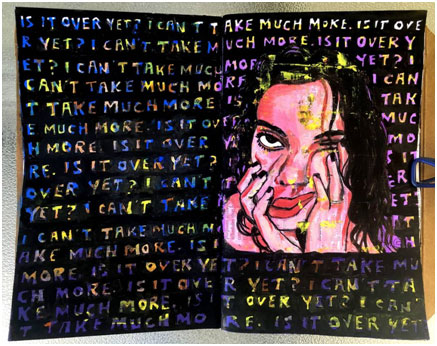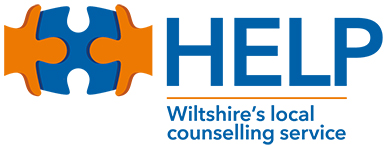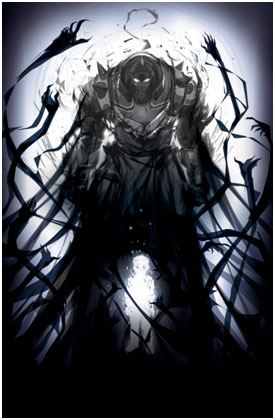- Home
- Blog
- How to help ourselves through the exhaustion of living through Covid
How to help ourselves through the exhaustion of living through Covid
Sue Brayne
suebrayne.co.uk
More than a few people have been telling me that it feels as if they are dragging themselves through their day. These are not people who are particularly stressed or ill or having to cope with a Covid-induced family crisis. These are people who are just plain exhausted all the time and can’t make sense of it.
I think it’s important to understand that right now in human history we are experiencing immense changes that are profoundly affecting us on a personal and collective level. I come from the standpoint that we are all deeply connected to each other, and therefore whatever happens to us as individuals must affect us through what psychologist Carl Jung described as the collective unconscious.
The financial and emotional fallout from the Covid pandemic is terrifying enough, but this is set against the backdrop of climate change and the threat to human survival. It’s a lot to take on board and all of us are learning to deal with it in our own way. However, most of us have little idea of how these events are triggering traumatic reactions which impact the way we can cope with what’s going on. Those of us who have developed inner resilience will fare better than those who are sitting on unprocessed trauma, sometimes stretching back into childhood. Unprocessed trauma makes us feel much more vulnerable and exposed and therefore less able to deal with threats either real or perceived.
Survival is a primitive instinct
Irrespective of our coping mechanisms, survival is a primitive instinct for us all. The overriding priority of our survival instinct is to keep us safe and alive – so it generates behaviour that helps us to do that.
When we perceive a threat, alarm signals by-pass any logical thoughts or reasoning (located in the left frontal cortex, and travel like an arrow to our limbic system (our survival centre), where we instinctively react through fight, flight or freeze actions. For example, in a nanosecond our unconscious assesses if we have adequate strength and space to flee. If we have no time to flee, but we have adequate strength to defend ourselves, we fight. But if our unconscious assesses we have neither time nor strength for flight or fight, we freeze.
It takes a mere 80 milliseconds to register and respond to signals of threat coming from our five senses, so it’s important to understand that we have no conscious control over our survival instincts. This makes me wonder on the collective level, whether our survival instincts are playing out at the moment in the way that some of us are taking to the streets, fighting against the establishment, while others are escaping to remote settings and even buying islands. Others again, are staying put but finding ways to numb out from the reality of what’s going on. Over-sleeping and watching wall-to-wall television are two ways to do this.
Irrespective of whether we are fighting, retreating or numbing out, these are all – consciously or unconsciously - acts of self-protection, which take considerable energy to maintain. This is one reason why so many people are complaining of exhaustion. I also wonder if the desire to sleep is also a call from deep within our subconscious to create space to process what’s going on. Certainly research reports that a lack of sleep increases levels of anxiety.
Fuelling fear and anxiety levels
There is another factor to take into consideration. Clinical trauma recovery includes addressing what may be triggering our traumatic reactions and finding ways to reduce our anxiety levels. However, we are living in a high-tech world which bombards us from every direction with media stories that fuel our fear and anxiety. If we are not careful, these powerful emotions can develop into Post-traumatic Stress Symptoms, which we unwittingly feed into the collective unconscious. Therefore, even though we may be doing well as individuals as we go through these immense global and planetary changes, we are being traumatically impacted on a psychic level by what’s being carried in the collective.
This is why, seemingly out of nowhere, people are experiencing traumatic symptoms such as intrusive nightmares about climate change or avoiding the reality of what’s going on by continually spacing out or experiencing hyperarousal through poor sleeping or panic attacks. These are enormous concerns, with no concrete answers. I don’t like using cliches, but we are indeed living through unprecedented times, and none of us really know how to deal with it.
Honouring a duty of care
So, how can we take back a modicum of control? I believe a place to start is being aware that we have duty of care for each other. People want and need to be heard, and if we aren’t listened to, it makes us angry and resentful. This leads to bad feelings towards others, especially those in authority. So, it’s about making a space to really hear each other. It’s also about being vigilant. When people become deeply traumatised, they often act out of character. This is when we can perhaps point the person in the direction of a trauma specialist.
There are also ways in which we can become more conscious and wiser around how we react to inevitability of what’s happening to our world. For example:
- Bravely admit that the world is changing and to stop fighting this reality. As already mentioned, any form of denial is exhausting.
- Become an observer. I find it helps to imagine sitting on a bench, observing the madness of the world pass by rather than getting caught up in the emotional dramas that are playing out across the globe.
- Do whatever we can to make a positive difference every day in our own life and in someone else’s life. I passionately believe in human decency and goodness and our ability to make positive changes through small acts of loving kindness.
- Appreciate that there is much more at play here. None of us know how the complexities of the Universe manifest on Earth, or how we may be part of a greater plan that is unfolding.
- Believe in life. Our interpretation of life tends to focus on the human experience. But life is abundant right across the planet in so many ways. The human experience may be changing and even drawing to an end, but life in some form will continue as long as the planet remains in existence.
- Think beyond ourselves. We really are grains of sand on a seashore, just passing through this earthly existence. It’s time to move beyond our ego-driven self-important hubris and allow the awe and wonder of our mortality to guide our way.
I hope this helps you to have a little more understanding as to why you may be feeling exhausted, and how you may be able to cope with it.
Go Back




